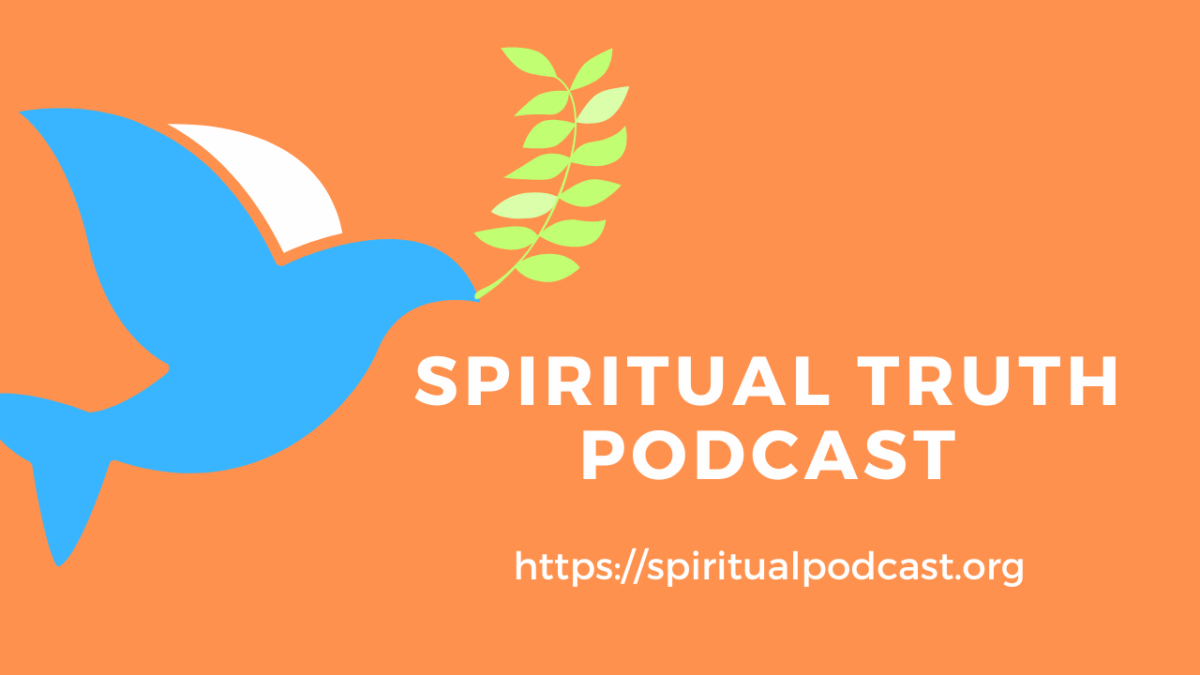Many have debased minds relying on their reprobate thoughts instead of the Bible’s 100% pure reliability
Hello everyone. Welcome back to Spiritual Podcast, your podcast for authentic Bible teachings. I’m so glad you’re tuning in today because we are diving into something that feels like it’s straight out of a sci-fi movie, but it’s actually our current reality in 2026.
Have you seen those videos lately? You know the ones—where a world leader says something completely unhinged, or a celebrity is suddenly endorsing a product they’ve never touched? You look at it, and your brain says, “That’s them. I see their face, I hear their voice.” But it’s not. It’s a deepfake. It’s an algorithm wearing a human mask.
We live in a world where “truth” has become something you can edit in an app. But here’s the scary part: as a society, we’re becoming addicted to the “plausible lie” while we treat the most reliable, historically backed document in human history—the Bible—like it’s the thing that’s made up.
Let’s get into why this is happening and what the Holy Scripture actually has to say about the “glitch” in our collective discernment.
If you would rather listen to this, just click the play button below. 🙂
The “Algorithm of Abandonment”
If you’ve been scrolling lately, you’ve probably noticed that outrage sells. Fake news travels six times faster than the truth because it’s designed to hit your “fight or flight” response. We’re being discipled by feeds that don’t care about what’s true; they only care about what keeps you clicking.
But this isn’t just a tech problem. It’s a heart problem. Paul actually predicted this “information decay” in his letter to the Romans. Check out Romans 1:28. It says and I quote:
“And since they did not see fit to acknowledge Yahweh, Yahweh gave them up to a debased mind to do what ought not to be done.”
Think about that phrase: “a debased mind.” Other translations call it a “reprobate” or “worthless” mind. In the original Greek, it refers to something that has been tested and found useless—like a counterfeit coin.
When we decide that we are the ultimate source of truth, and we “unfollow” Yahweh, our internal compass breaks. We lose the ability to distinguish the “pixel” from the “person.” We start believing the deepfake because our minds have lost their anchor.
Why People Choose the Lie
It’s easier to believe a deepfake that confirms our bias than to believe a Bible that challenges our behavior.
Fake news gives us a villain to hate or a hero to idolize. But the Bible? The Bible gives us a Mirror. And honestly? Most of us don’t like what we see in the mirror.
Paul continues in Romans 1:29-31, and man, it reads like a comment section on a viral misinformation post:
“They were filled with all manner of unrighteousness, evil, covetousness, malice. They are full of envy, murder, strife, deceit, maliciousness. They are gossips, slanderers… foolish, faithless, heartless, ruthless.”
Notice that word deceit. It’s tucked right in there between strife and malice. When we reject the Ultimate Truth (Yahshua), we don’t end up believing in nothing; we end up believing in anything. We become “faithless”—not just in the religious sense, but in the sense that we can no longer be trusted, and we no longer know who to trust.
The Original Eyewitnesses vs. The Digital Ghost
People say, “How can you trust a book written 2,000 years ago?” Well, let’s look at the “metadata.” A deepfake is created in a vacuum by a black-box AI. But the New Testament? It was written by eyewitnesses who had nothing to gain and everything to lose.
When Apostles Peter, John, and Paul wrote their accounts, they weren’t “generating content.” They were recording events that happened in broad daylight, witnessed by hundreds of people. They didn’t die for a “plausible lie.” They died because they couldn’t stop talking about what they had actually seen with their own eyes.
While we’re out here debating whether a 30-second TikTok of a politician is real, we have over 25,000 manuscript fragments of the New Testament that prove the message hasn’t shifted an inch in two millennia. The Bible isn’t “fake news”—yes, it’s the most “fact-checked” document in history.
How to De-Bug Your Discernment
So, how do we live in 2026 without getting lost in the hall of mirrors?
1. Check the Source: Before you hit “share” on that sensational headline, ask: Does this lead me toward the “malice and strife” mentioned in Romans 1, or toward the fruit of the Holy Spirit?
2. Immerse in the Original: If you want to spot a counterfeit, you don’t study the fakes; you study the original. The more time you spend in the Bible, the more “off” the deepfakes of this world will start to look.
3. Acknowledge the Judge: Remember Romans 1:28. Don’t let your mind become “debased.” Keep Yahweh at the center of your “mental tab,” and He will keep your discernment sharp.
The world is getting louder, and the fakes are getting better. But the Truth—the real, embodied, historical Truth of Yahshua the Messiah—is still the only thing that can set you free!
Friends, if you’d like to continue this conversation or share your thoughts on this topic, leave a comment below or reach out to me directly. You are also welcome to peruse our previous podcast episodes on this website and visit our sister website by clicking here to read and learn more genuine truths from the Bible.
Brethren, before I go, let me pray this prayer for you: May Yahweh bless you and keep you; may Yahweh make His face shine upon you and be gracious to you; may Yahweh lift up His countenance upon you and give you peace. I humbly pray all these things to Yahweh through Yahshua the Messiah, our Master and coming King, amen. Kindly keep praying for the shalom of Israel. Take care. Halleluyah!
Thanks for hanging out with me today. If this challenged you, share it with someone who’s struggling to navigate the noise of this fading world. And remember: don’t just follow the feed—follow the Bible!
See you again next time, folks. I am Elder Dan, signing off. Shalom!



